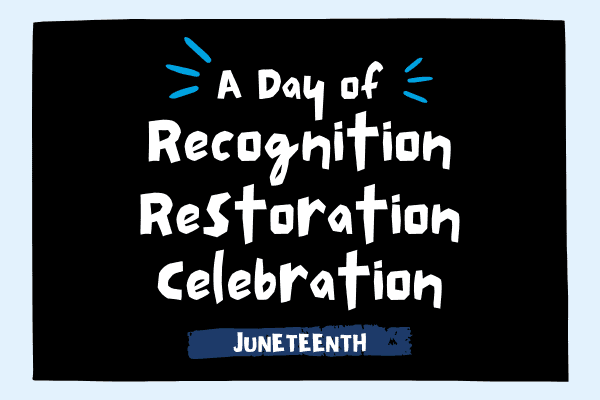Introduction: Juneteenth National Independence Day
Now officially recognized by the United States federal government as a national holiday, Juneteenth National Independence Day celebrates the day when the last enslaved black Americans in Texas learned of their emancipation more than three years after President Lincoln issued the famous proclamation.
The Delayed Emancipation: Enforcing the Emancipation Proclamation in Texas
Following President Lincoln’s issuance of Proclamation 95 – the Emancipation Proclamation (issued September 22, 1862, effective January 1, 1863) – over 3.5 million enslaved people had their status under federal law changed from “enslaved” to “free” in the rebelling Confederate states. However, enforcement of the Proclamation was largely dependent on the advance of Union troops into Confederate territory.
Texas, the most westward slave state, saw an expansion of slavery during the Civil War. During the war, many slaveholders migrated to the state, oftentimes bringing enslaved people with them. By the end of the war, the enslaved population in Texas had grown to an estimated 250,000.
Juneteenth Emerges: Union Troops and General Order No. 3
After the surrender of General Robert E. Lee to the Union Army on April 9, 1865, some Confederate generals refused to lay down their arms. General Edmund Kirby Smith, commander of the Confederate Army of the Trans-Mississippi, continued to hold out and keep fighting in Texas. On June 2, 1865, Smith officially surrendered in Galveston.
In the early hours of June 19, 1865, Union Major General Gordon Granger arrived in Galveston, Texas with orders to take command of the more than 2,000 newly arrived federal troops sent to the state to enforce the emancipation of enslaved persons and oversee a peaceful transition of power. On the day of his arrival, Granger issued General Order No. 3 which informed the people of Texas of the Emancipation Proclamation and the freedom of the formerly enslaved. Granger’s men marched the streets of Galveston reading the order, finishing their march at the Negro Church on Broadway (later renamed the Reedy Chapel-AME Church).
Challenges and Revival: The Impact of Jim Crow and the Texas State Fair
Juneteenth, or Jubilee Day, was first organized and celebrated by freedmen in Texas one year after General Order No. 3. Considered to be America’s second Independence Day, Juneteenth is the longest-running African American holiday. Early celebrations were often held at Churches or other private venues, as many African Americans were still prohibited from using public accommodations for their celebrations. These early celebrations were primarily used as political rallies where newly freed slaves were given instructions on voting.
The Jim Crow Era in the former Confederate states (including Texas) disenfranchised black Americans and led to a decline in Juneteenth celebrations. The Great Depression pushed many black Americans from rural farm towns to urban cities to find work and they difficulty taking the day off to celebrate.
The revival of Juneteenth celebrations was kicked off in 1936 when the Texas State Fair began serving as a destination to celebrate the holiday. That year, an estimated 200,000 people celebrated together in Dallas. The Texas State Fair hosted Juneteenth celebrations until 1951. Over the years, celebrations have grown and evolved, but the importance of the day to black Americans, and the country, has remained as potent as it was in 1865. Today, Juneteenth celebrations involve congregations, cookouts, parades, musical services, and other public events.
Juneteenth: From State Holiday to Federal Recognition
In 1979, a bill passed through the Texas Legislature declaring Juneteenth an official state holiday. Texas officially declared Juneteenth a state holiday on January 1, 1980, becoming the first state in the Union to do so. On June 15, 2021, the U.S. Senate unanimously passed the Juneteenth Independence Day Act. The next day, the bill was approved by the U.S. House of Representatives and on June 17, 2021, President Joe Biden signed the bill, officially making Juneteenth the eleventh federal holiday in the United States.
Juneteenth, also known as “Jubilee Day”, “Freedom Day”, “Liberation Day”, or “Emancipation Day”, is not only a celebration; it is also a day for remembrance, reflection, and awareness. Though the Emancipation Proclamation legally ended chattel slavery in the Confederacy and Granger’s General Order No. 3 enforced Lincoln’s order in the last bastions of slavery in the south, the practice was still legal under the U.S. Constitution. It wasn’t until the passage and incorporation of the Thirteenth Amendment in December 1865 that slavery and involuntary servitude were abolished.
The day commemorates the hardships endured by the victims of enslavement, as well as their ancestors who have continued the fight for equity, racial justice, and freedom and justice for all. As we continue to confront the history of the nation and the ongoing struggle for equity, Juneteenth serves as an example of how communities can come together to empower each other and promote change from within.













